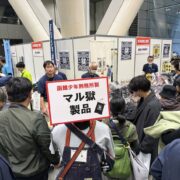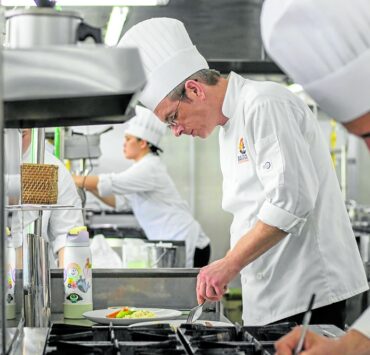Catholicism and convenience: Musings of a religious educator

In late 2011, a big change occurred in the Catholic Church: the release of the new English translation of the Mass. The response “And also with you” became “And with your spirit.” “I am not worthy to receive you” was now “I am not worthy that you should enter under my roof.”
One change aroused controversy: the more frequent use of the longer Nicene Creed than the shorter Apostles’ Creed. It was controversial because of the theologically-heavy word “consubstantial.”
Many years ago, in a conversation about that very topic, a now Jesuit priest told me: “Hindi iyan maintindihan ng mga tao, ng mga masa.”
And it hit me: This, in my humble opinion as a religious educator, is an issue with the Church in the Philippines. Here, there is a tendency for Catholicism to be more about convenience and less about intellect and effort. It’s more about cultural practices and tradition—more about palaspas during Palm Sunday and puto bumbong during Christmas and less about an actual, day-to-day conversion into becoming better people.
What do I mean by this rather provocative claim?
In the USA, where I lived for two years as a graduate student at Yale University, I was blessed with the most beautiful of faith experiences. Normally, a church in the US would limit their Sunday Masses to around three, with one of those Masses being a Solemn Mass. A Solemn Mass would likely feature incense, a trained choir, use of the pipe organ, and the priest chanting the prayers of the liturgy.
In the Church of St. Vincent Ferrer in New York City, run by Dominican priests, their Sunday Solemn Masses were always at noon. It always had incense, and the priest would solemnly chant the liturgical prayers from start to finish, all within one hour. And, to my joy, the church was always filled with young people! And yes, those Masses were in English, not in Latin.
Another observation, this time on Church music. Churches in the US take their liturgical music and choir training very seriously. The music director of my go-to parish, St. Mary Church in New Haven, Connecticut, holds a doctorate
in music. Yes, you read that right: a doctor of music for a church choir. The choir would carefully and meticulously base their music on the antiphons and readings for that Sunday. They didn’t just keep reusing their version of “Tinapay ng Buhay” or “Purihin ang Panginoon” out of convenience.
I benefited significantly from those faith experiences, to say the least. And I was incredibly moved by them. Why? Because both priest and congregation prayed with real intentionality and disposition. Each and every Solemn Mass was a loving devotion to God, to be prepared for with thoughtful minds and open hearts. For them, Mass and other liturgical experiences were about contemplation, deep reflection, and conversion.
Meanwhile, here in the Philippines, the atmosphere I constantly feel is that Catholic life has come to mean attending Masses of convenience. Meaning, let’s just fit Sunday Mass into the schedule so we can go shopping after the service at the mall chapel finished.
Meaning, let’s just stand outside the church so we can leave right away after the final blessing—even before the priest has left the altar area. Meaning, after Mass, we can just go back to our usual ways of lying and cheating other people. It’s an undeniable observation: This is what’s occurring in the Philippines.
Let’s stop and think about all of this very seriously. Is our faith simply a faith of convenience and of feeling good? A faith that’s just cultural practice? A faith that only comes alive during Palm Sunday because of palaspas and Simbang Gabi because of puto bumbong?
The call of Jesus Christ is to love and sin no more, as He says to the woman caught in adultery in the Gospel of John. The faith that Jesus calls us to have is a faith that demands a conversion of our whole selves. It’s a faith that demands justice and our time and effort. Why? Because the grace of our God is worth more than anything in this world! Grace transforms us and those around us beyond our expectations. Indeed, Jesus is the Way, the Truth, and the Life.
So, here is my call, from both a religious educator’s perspective and a proud member of the lay faithful:
To our beloved Filipino Catholic bishops, priests, and clergy, I sincerely appreciate all your efforts and service. But don’t be afraid to challenge us. After all, you are our spiritual shepherds here in the Philippines. Pray the Mass with intentionality, solemnity, and dignity. Do not rush the prayers because of your 30-minute homily in which you just say the same thing again and again. Go straight to the point. And please, encourage better song selections and choir quality for the Mass.
To my fellow lay faithful, let us use our skills, talents, and time for the good of the Church and of society. We are all called to be holy. All of us. Not all of us can be doctors in music, and many of us are busy with our demanding jobs that we need to earn our keep. But there are so many of us. Imagine the good that can be reaped if we combine our forces and talents.
To God the Holy Trinity, who loves and calls us to love, be glory and honor, now and forever. Amen.

















